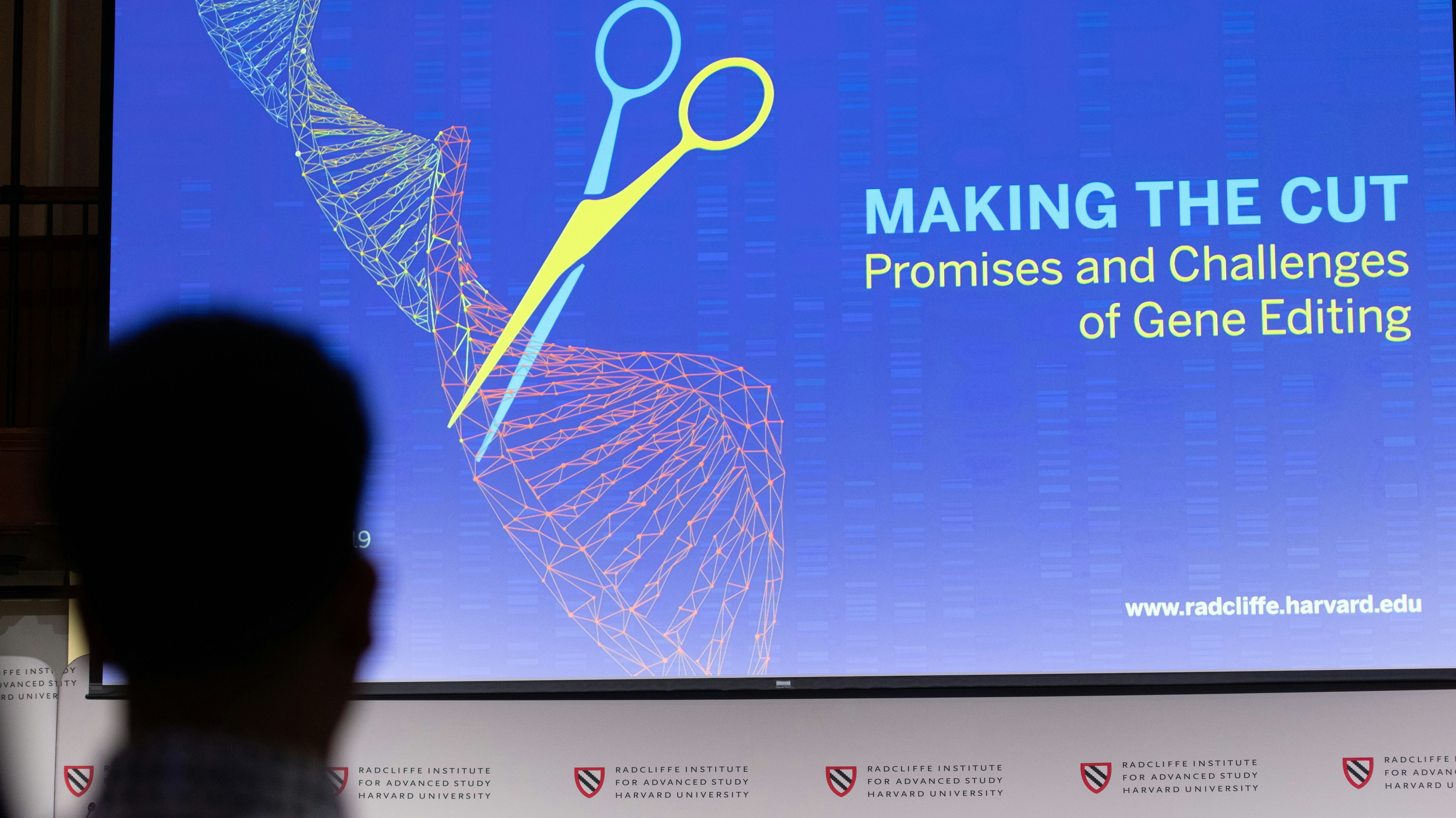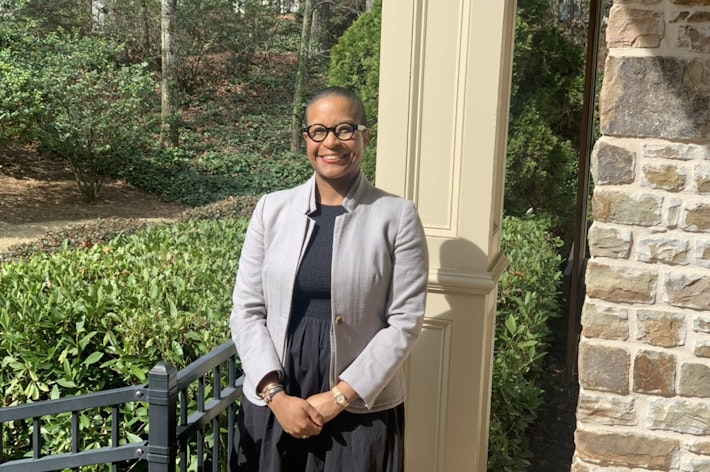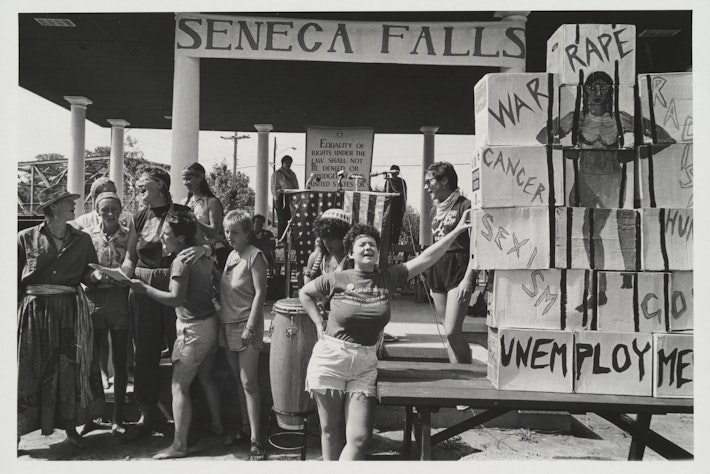Winding through the Disciplines

For one Harvard undergraduate, a trip to a science symposium leads to enriching connections
We squeezed into the row, our backpacks just skimming the floor and the event’s pamphlets flapping in the air. We were seated, shoulder to shoulder, with wide-eyed college students, scribbling graduate students, foot-tapping professors, and curious members of the public. Pen in hand, we were ready to hear from and engage with international gene editing experts at the 2019 Harvard Radcliffe Institute science symposium, “Making the Cut: Promises and Challenges of Gene Editing.”
Dashing to class a week earlier, a huge golden pair of scissors on a flyer had caught my eye.
“Gene editing, a technology that enables scientists to change an organism's DNA, holds promise for the prevention and cure of such complex human diseases as cancer, heart disease, and sickle cell anemia,” I skimmed.
It was only October of my first year at Harvard College. Already, I had been flooded with event invitations and open opportunities in my inbox and plastered over the bulletin boards around campus. But, as someone interested in studying the molecular sciences and curious about the Institute named after the former women’s college at Harvard, I hung on to those golden scissors and RSVP’d. Only later did I realize just how instrumental those scissors would be in opening up a new world of possibilities for me at Harvard Radcliffe Institute: even as a budding first-year student, I not only had access to a wide-spanning repertoire of events and resources but could also directly interact with the content myself.
Stepping into this world was like stumbling upon a blossoming secret garden. Even as I kept to a path of science, trails to Radcliffe events in other disciplines opened up, such as those in ethics, literature, history, ethnicity and identity, and more. Having taken mostly classes in the sciences, at first these trails seemed like indulgent wanderings, links that I might respond to in a newsletter only to not attend because I was not a “humanities person.”
Interestingly, it was after attending another science event last fall, “Benefiting from the Human Genome,” that I recognized these trails into other disciplines not as arbitrary treks but as circular paths that weaved in and out of science with dozens of connections. At this event, much to my surprise, the 23andMe founder Anne Wojcicki and moderator Jonathan Zittrain focused less on the science and more on 23andMe’s larger mission: the importance of knowing your story—here, your genomic story.
Their conversation on the power of stories rang in my mind as I read through patient and physician accounts in essays, plays, and novels as part of Karen Thornber’s undergraduate course Disease, Illness, and Health through Literature. Often, due to a professional, emotional, or language barrier, there would be a disconnect between patient, family, and care team over the patient’s story, and care would be suboptimal as a result. Indeed, equations, data, and procedures would not make these stories whole; only words and listening could.
As an aspiring physician, I hope to listen and weave together the threads of my future patients’ stories while incorporating the more scientific, quantitative results of lab tests and diagnostic procedures. The interdisciplinary connections I am making through engaging in the large menu of events offered at Harvard Radcliffe Institute are helping me develop the critical skills I’ll need to properly inspect each piece of their stories, see the connections to what ails them, and be a more insightful medical doctor.
The more I engage with the Institute, the more I am able to better understand and appreciate science in its many forms. And even as I stroll along the off-road trails through other disciplines, I know that there will always be a route connecting back to my main path—and that an infinite number of connecting trails exist to enrich the journey.







